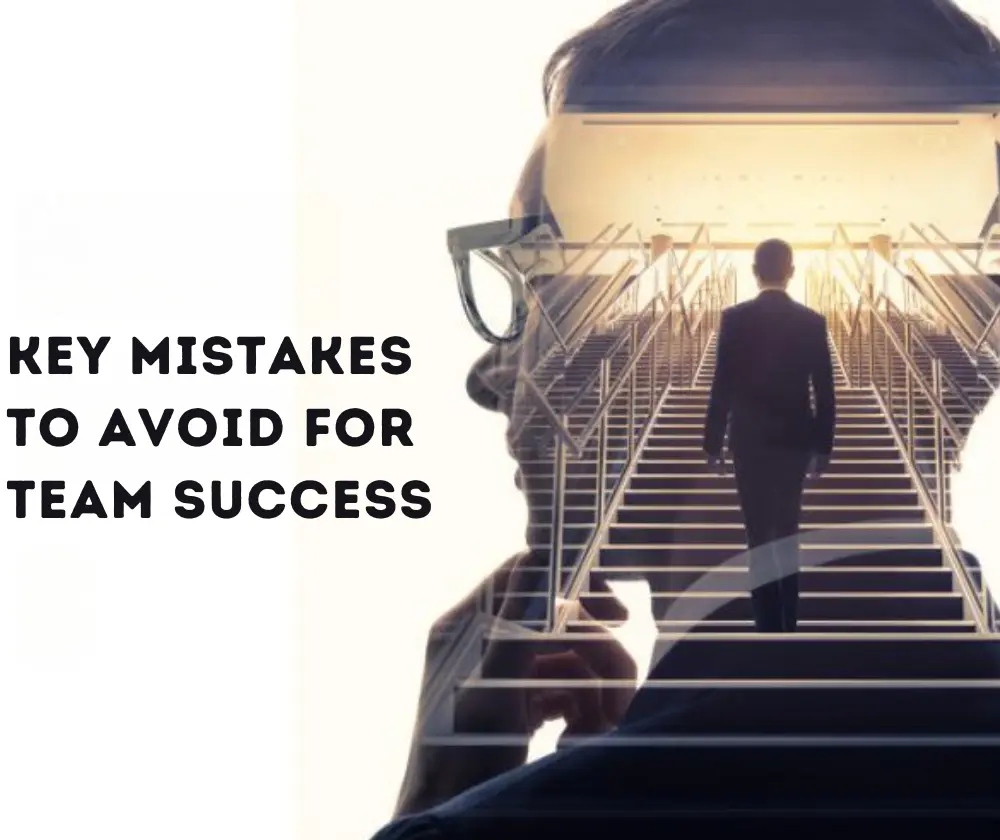5 Key Mistakes to Avoid for Team Success in 2024

A new year is the perfect time for teams to reflect on past stumbles and build stronger bonds for the months ahead. I’ve been part of many teams over the years—some super successful and others not so much. Looking back, I can see the mistakes that derailed us.
After many missteps, I realized that building healthy team dynamics takes work, but being intentional about communication, trust, decision-making, and having each other’s backs sets you up for the win. In this article, we will share the top 5 team traps I’ve learned to avoid that hinder team success.
Mistake 1: Toxic Culture
I once had a team after a hierarchy shift filled with gossip, blame games, and office politics. There was zero trust or respect among members. Egos and personal agendas ruled; thus, I had to reset our culture completely. It took time, but safe to say it was worth it.
Nowadays, I model vulnerability, celebrate diverse perspectives, and build psychological safety. The real magic happens when you’ve got each other’s backs personally and professionally. So, I opted for my team publicly and empower them with autonomy. Looking back at all the flaws, I can now say that trust has become our team’s superpower!
Mistake 2: Poor Decision Making
Early on, I assumed my role as a project manager meant I should drive all key decisions. That led to bottlenecks and displeased my team members. They weren’t on the same page as I was making poor decisions.
To solve this issue, we distinguish between collaborative decisions (using consensus or voting) versus delegated ones, where subject matter experts take the lead. I have the final say in big strategic choices, but I always incorporate feedback. Lastly, we revisit and adjust our decision rights framework quarterly. So, the clarity that we had upfront prevented all delays and confusion down the road to our collective success.
Mistake 3: No Clear Goals
I’ll never forget when our leadership called for a new product offering but gave zero specifics on what that meant. Simply put, we had no plan. Our team wondered for months, wasting time on proposals that leadership ultimately rejected because we didn’t know what to do. We were a ship lost at sea with no destination.
That’s when I realized that a team leader needs to set SMART goals that are specific, measurable, achievable, relevant, and time-bound. So, I broke down the broader vision into actionable objectives, metrics, deadlines, and responsibilities. Furthermore, I guide my teams to set quarterly goals aligned with our overall strategy. Ultimately, having this clarity upfront prevents so much frustration that we would face otherwise!
Mistake 4: Closed-Door Communication
Early in my career, I was part of a team where everything was on a need-to-know basis. We all worked in isolation, confused about what others were doing. Without context on the change, I’d learn about a new launch date for my project area via email. Because of the lock-door policy, there was no trust or willingness to collaborate. Therefore, the team had zero bonding and no collective interests or ideas.
So, from the beginning of this year, I will establish norms, including response times, status updates, and escalation protocols. I will also encourage conversations on Slack rather than just formal meetings to improve team building because I’ve realized that open communication is the oxygen for team success.
Mistake 5: Lack of Collective Accountability
I once had a star performer assigned to be held accountable for underperformers because I was busy with meetings for the whole month. I later realized that she would eventually burn out as the progress was very low. So, when I got back to her and thought of consulting the team on collective accountability, she had already decided to leave the company. It was a huge blunder, and on top of that, we lost a valuable employee.
So, now I have decided to tackle issues head-on. I provide coaching and support but have a zero-tolerance policy if there is no improvement. I strictly advised my team to avoid finger-pointing and instead foster collective ownership. We work with the same energy and individual accountability, ready to stand or fall together.



